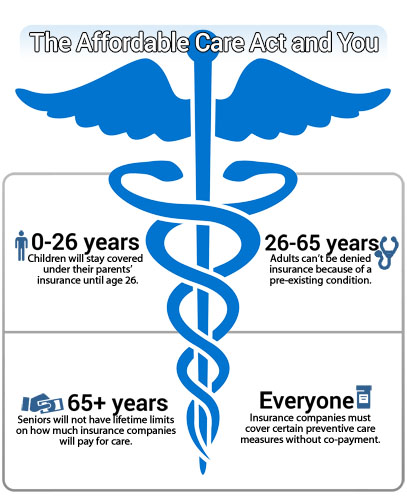Open enrollment for the Affordable Care Act (ACA), which allows American families to register for health insurance, began Oct. 1 as outlined by measures in the 2010 law.
The ACA, commonly known as Obamacare, will decrease health insurance regulation, prevent insurance discrimination, and require all Americans to register for health insurance or pay a fine. While some provisions have already gone into effect, the open enrollment for insurance is the last phase of the ACA rollout and coverage will begin on Jan. 1, 2014. The goal of open enrollment is to provide those who cannot afford health care with access to insurance coverage.
South students who are covered by private insurance can have their insurance payments changed as a result of the anti-discrimination policies. Junior Mark Risinger’s family currently pays for expensive supplies to care for three family members with Type 1 diabetes, but under the ACA his family’s total costs will decrease.
“Being in a family of three Type 1 diabetics, we spend a lot of money on insulin, insulin pump supplies and test strips,” Risinger said. “The [ACA] makes it so that the out-of-pocket expense for prescriptions now applies to our overall maximum out-of-pocket expense for the year. This will greatly benefit my family.”
Pre-existing conditions like diabetes often make finding a health care plan a challenge. Insurance companies are not currently required to insure those with previous health issues, or can charge significantly higher prices for insurance. Risinger’s mom could not get insurance when she was younger because of this stipulation from the companies.
“My mom was denied when she was 22 for health insurance because of just one pre-existing condition: her diabetes,” Risinger said. “The ACA prevents insurance companies from denying health care due to pre-existing conditions.”
Other South students have also experienced pre-existing conditions inhibiting health care access. Freshman Spencer Colbeck’s mother and stepfather both have pre-existing conditions because of thyroid and heart conditions, making it difficult to get insurance when the family ran their own small business.
When Colbeck’s stepfather had minimal insurance, he had to buy his own medicine to prevent another heart attack.
“He almost went without getting [the medication] because it was too expensive,” Colbeck said.
Colbeck’s parents will also start insuring employees at their restaurant, Corleone’s Trattoria, because of the ACA.
In addition to covering pre-existing conditions, the ACA requires insurance companies to provide equal treatment for mental health. Previously, there had been discrimination for mental health treatment with higher payments. Lack of certain policies prevents many patients from getting help, according to Dr. Lara Cummings, assistant principal of guidance.
“I do think we find students and families that may have insurance that will cover ER visits […] but not [mental health],” Cummings said. “So often times we can have a student that’s hospitalized […] and they don’t get the level of care and treatment they need because [of insurance].”
The ACA would allow students to get the nessecary coverage and positively impact South, according to Cummings.
“[With the ACA,] to think that all of our students could have access to mental health services is wonderful,” Cummings said.
Anyone who would like to enroll in an insurance policy provided by the ACA can go to getcoveredillinois.gov by Dec. 15 to receive coverage starting Jan. 1.








